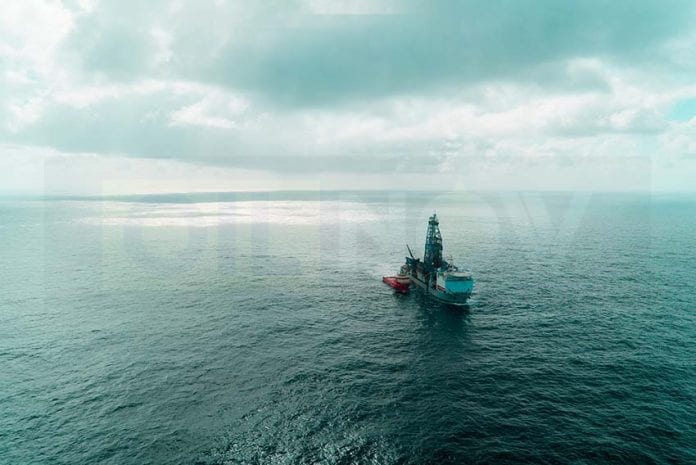In what is quite possibly its sharpest criticism of one aspect of ExxonMobil’s offshore activities, Guyana’s Vice President Bharat Jagdeo said last week that his government is “opposed to flaring.” His comment came at a press conference hosted by the President of the South American country, Dr. Irfaan Ali, when they faced questions from the press about the environmental impact of flaring offshore.
Flaring is a process through which natural gas is burnt off in a controlled manner when extracting oil and is a standard industry practise when an absence of the associated infrastructure or markets prevents the gas from being used.
“There tend to be more of these associated gases as waste streams, especially at the beginning of operations, mostly for safety reasons,” said Dr. Morgan D. Bazilian, Director of the Payne Institute and a Professor of public policy at the Colorado School of Mines.
According to the US Department of Energy (Natural Gas Flaring and Venting: State and Federal Regulatory Overview, Trends, and Impacts – June 2019), flaring that occurs for operational and safety reasons, “is generally short term and necessary to ensure safe operating practices.”
Dr. Bazilian said when there are market or infrastructure impediments or the unavailability of infrastructure that can take the natural gas, “the practice is to flare or burn these gases rather than directly venting them.”
Venting is the controlled release of unburned gases into the atmosphere in the course of oil and gas production operations. Flaring produces predominantly carbon dioxide emissions, while venting produces predominantly methane emissions. The global warming potential of a kilogram of methane is estimated to be twenty-one times that of a kilogram of carbon dioxide when the effects are considered over one hundred years.
In the case of Guyana, the operational plan is for the gas to be reinjected into the reservoirs, with no routine flaring and no venting.
ExxonMobil had earlier this year reported to Guyana’s regulatory and oversight agencies that it had encountered some issues with its gas compressor system, and that repairs had been delayed due to travel restrictions and isolation protocols related to the COVID-19 pandemic. It had also reported that it had cut crude oil production at the Liza Destiny FPSO in an effort to reduce the amount of gas being flared.
But since the reports of flaring had surfaced, local environmentalists and some civil society commentators have called on the government to sanction the company.
“I don’t think the issue is so much the immediate environmental impacts of a new project. Those tend to occur, and when a country is not familiar with resource development, they seem— and they are—significant,” Dr. Bazilian said. “But the long-term issues of economic stability, sustainability, revenue and wealth creation, and institutional integrity turn out to be more important…the longer-term ones.”
The Global Gas Flaring Tracker Report recently released by the World Bank, listed 30 countries including Russia, Iraq, Iran and the United States as the top four gas flaring countries. Guyana, which according to reports, has been flaring some 2.7 billion cubic meters of gas over a 6-month period (9 billion cubic feet), was not included in the World Bank’s list.
President Ali has said the government will “have to strike a balance on flaring.” That balance according to him, will be to prioritise “bringing gas to shore as quickly as possible.”
The previous government had begun exploring the possibility of doing exactly that and had completed a feasibility study with support from the IDB, for the construction of a natural gas pipeline.
Since taking up office in August, the new administration has committed to pursuing this project and has already held meetings with key stakeholders, including ExxonMobil, operator at the Stabroek Block.
Government officials have said, notwithstanding environmental and other concerns, the revenues expected from development of Guyana’s vast offshore hydrocarbon resources form a key aspect of the country’s development plan.
“There are many people saying now that we should not be producing oil. We don’t have that option in Guyana. Our people badly need development and we have to make sure that we produce the oil and get as much development out of it for our people to invest long term in other sectors so that they can get wealthier and have a decent life,” Mr. Jagdeo said.



